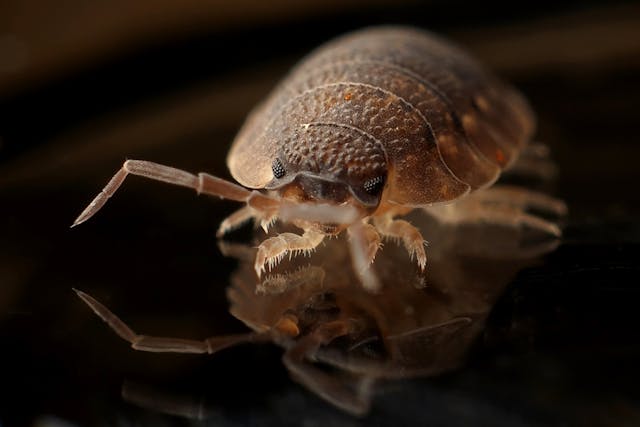When pests invade your home, it’s tempting to head to the local hardware store, grab a few sprays or traps, and take matters into your own hands. But while DIY pest control may seem like a quick and affordable fix, it can often lead to bigger – and more dangerous – problems. Let’s break down the key differences between DIY pest control and hiring a licensed professional so you can make the most informed decision for your home and family.
Application Methods: Precision vs. Guesswork
Professional pest control companies use strategic, targeted application methods. Whether it’s baiting, dusting, trapping, or applying a barrier treatment, professionals know exactly where to treat for maximum effectiveness and minimal disruption. In contrast, DIY pest control often involves guesswork. Sprays might be applied in the wrong areas or in incorrect amounts, which can miss the target pests and even drive them deeper into your home.
In some cases, improper application can backfire – especially with ants. Disturbing a colony without eliminating the queen can cause the colony to “bud,” leading to multiple satellite colonies and a worse infestation than you started with.
1. Technology and Tools: Professional Grade vs. Store Bought
Licensed pest control companies have access to professional-grade products and application tools not available to the public. These advanced technologies allow for deeper penetration, long-lasting effects, and more accurate targeting. DIY products, on the other hand, are diluted and designed for general use, which means they may only offer temporary relief rather than a long-term solution.
For example, professionals often use growth regulators, specialized gel baits, and commercial-grade dusts that eliminate pests at the source and interrupt their reproduction cycles. These are rarely available to unlicensed individuals, and they require knowledge of how and where to apply them safely and effectively.
2. Knowledge and Training: Experts vs. Trial and Error
Pest control technicians are trained to identify the specific pest species, understand their behavior and nesting patterns, and select the most effective treatment plan. This knowledge is gained through both certification programs and hands-on experience. DIYers often rely on internet searches or label instruction, which can be vague or misleading. Without proper pest identification and understanding of their habits, it’s easy to treat the wrong area or use the wrong product altogether.
Different pests require different strategies. What works for ants may be completely ineffective – or even harmful – when dealing with roaches or spiders. Professionals have the experience to know the difference.
3. Licensing and Regulation: Legal Expertise and Safety
Professional pest control companies are licensed and insured, meaning they are held to state and federal regulations when it comes to product usage, safety, and application. They understand how to apply products responsibly and with minimal risk to people, pets, and the environment. DIYers may unknowingly misuse products, applying more than necessary or using them in areas where exposure can harm children or pets.
Some DIY pesticides contain toxic chemicals that can linger on surfaces or in the air when used improperly, posing a health risk to your household. Professionals, on the other hand, are trained to measure and apply these products in safe and compliant ways. Often using lower-toxicity options that are just as effective.
4. Long-Term Results: Prevention vs. Repeated Infestations
Professionals don’t just treat the visible problem – they target the source. Whether it’s sealing up entry points, eliminating food sources, or setting up a seasonal prevention plan, pest control companies focus on long-term results. DIY treatments often provide short-term relief but fail to get to the root of the issue leading to repeat infestation and more frustration down the road.
In Florida, for example, recurring issues with ants, roaches, or even termites are common due to the climate. Greenhouse Termite and Pest Control offers quarterly and annual service plans that protect homes from seasonal pest activity before it starts, rather than waiting for an infestation to take hold.
Other Risks of DIY Pest Control
While cost-saving might be your primary reason for choosing DIY over hiring a professional, it’s important to understand that mishandled pest control can cost more in the long run. Here are a few additional risks to consider:
- Resistance Buildup: Many store-bought sprays are overused or misused, which can lead to pest resistance. Over time, these pests become harder to kill with those same products, making the infestation worse.
- Accidental Contamination: Spraying near food prep areas, improperly treating pet bedding, or applying products near air vents can lead to contamination of your living space.
- Damage to Property: Some pests, like termites or carpenter ants, can cause serious structural damage when left untreated or improperly treated. What looks like a small problem could be just the tip of the iceberg.
Why Professional Help is The Smarter Choice
Choosing a licensed pest control company means you’re not just paying for a product. You’re investing in knowledge, safety, and long-term peace of mind. From identifying the root of the issue to using strategic eco-conscious methods, professionals offer solutions that DIY efforts simply can’t match
At Greenhouse Termite and Pest Control, we prioritize family-friendly methods that eliminate infestations without compromising your health or home. Our team is trained, licensed, and committed to providing the highest level of care, using industry-best technology and a customized approach for every household.



































